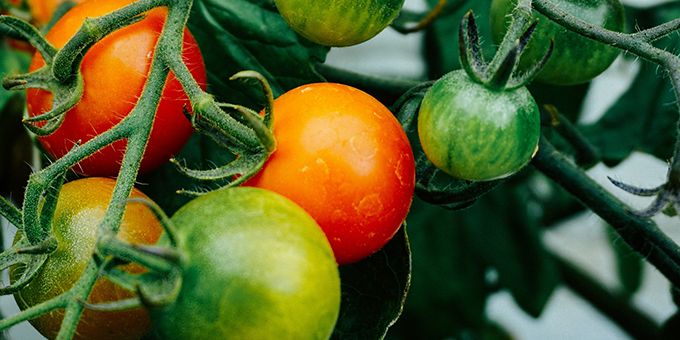Using Motorleafs artificial intelligence and machine-learning algorithms, the digital agronomist software can acquire data from indoor growing conditions. In turn, the algorithms learn growing patterns in the greenhouse, which then can predict the size of future harvests.
 More Accurately Forecasting Future Harvests Using Artificial Intelligence
More Accurately Forecasting Future Harvests Using Artificial Intelligence

Contributed by | Motorleaf
eprinted with permission from the Motorleaf blog:
It all started in 2016 in rural Sutton (Quebec) when Ramen Dutta, now CTO of Motorleaf, had trouble finding friends to water his plants while he was away on vacation.
With a US$2.85 million round of financing, artificial intelligence start-up Motorleaf can revolutionize greenhouse growers’ crop planning, achieving major productivity gains and reducing greenhouse gas (GHG) emissions. The financing round comprised notably Radicle Growth,
Desjardins Capital, Real Ventures, Fluxunit and BDC Capital. With their support, Motorleaf can be a game changer in this agri-food sector niche in industrialized countries.
Motorleaf develops yield-predicting algorithms and indoor growth sensors. Using these advanced technologies that monitor plant growing conditions, greenhouse vegetable and tomato producers can make better business decisions and reduce costs, energy in particular, as well as water consumption, a critical factor in many regions around the world.
“We're ready to distribute our technology so farmers can meet their fullest potential and acquire an innovative cost-cutting tool within the controlled-environment agriculture sector," said Alastair Monk, co-founder and CEO of Motorleaf.
Predicting the amount of vegetables from a harvest is currently a time-consuming process. Agronomists count samples of vegetables, leaves and flowers in a small area and that sample then serves to estimate the expected yield of the entire grow operation. Often imprecise, farmers are unsure if they will produce enough vegetables to meet contract obligations or know how much labour they will need to package their produce. If they produce too much, farmers try to sell their perishable goods quickly at rock-bottom prices. Using Motorleaf’s artificial intelligence and machine-learning algorithms, the digital agronomist software can acquire data from indoor growing conditions. In turn, the algorithms learn growing patterns in the greenhouse, which then can predict the size of future harvests.
Cutting harvest prediction errors by half
Harvest yield-predicting algorithms are the latest technology born from Montreal’s booming artificial intelligence sector. With this financing round, Motorleaf aims to further develop its software and sensors so that its equipment can acquire additional data from common indoor climate control and irrigation systems. Farmers can now adopt this technology with a small addition of Motorleaf equipment, but without the need for dramatic changes to their greenhouse infrastructure.
“Better yield prediction is only the beginning for Motorleaf’s added value to this sector,” says Alastair Monk. “We’re ultimately producing dynamic grower protocols, which help manage everything from light and nutrients to predicting greenhouse diseases before they happen, and optimized growing conditions that increase return on investment – all based on real-time data.”
Initial trials of the technology since October 2017 in a 70-acre California greenhouse cultivating tomatoes demonstrated its value to farming. Client SunSelect reduced its error in predicting weekly tomato yield by half, resulting in significant cost savings for the grower. As a result of the improved predictability using Motorleaf’s technology, SunSelect has since abandoned manual yield predictions in favour of Motorleaf’s algorithms.
“The latest algorithm [from Motorleaf] is close to cutting our yield prediction error rates by half. It goes without saying it's a game changer that no one saw coming. Motorleaf is now our new standard for predicting yield.”
- Victor Krahn, co-owner of SunSelect
The province of Quebec has 900 greenhouses, half of which have an area of under 999 square metres
Data compiled by the Ministère de l'Agriculture, des Pêcheries et de l'Alimentation (MAPAQ) shows 900 greenhouses in 2016, including 356 specialized in vegetables, 388 in flowers and 156 mixed greenhouses, for a total area of 297.2 hectares (ha). The same data shows that the three regions with the largest greenhouse areas were Montérégie (77.8 ha or 26%), Laurentians (54.3 ha or 18%) and Laval (34.8or 12%). As for the number of farms, Montérégie had 226 (or 25%), Laurentians 117 (or 13%), Chaudière-Appalaches 72 (or 8%), Centre-du-Québec 59 (or 7%), Laval and Lanaudière with 55 each (or 6%) and the Eastern Townships 51 (or 6%).
Inspired by dead plants
The idea for Motorleaf stems from the heartbreak of returning home to find your prized plants dried out. Living in rural Sutton, Ramen Dutta, CTO of the Montreal start-up, had trouble finding friends that could drive to his home and water his indoor plants while he was away on vacation. Being an agricultural engineer, he built an automated, sensor-controlled irrigation system that would become the foundation of Motorleaf’s technology.
About Radicle Growth
Radicle is an acceleration fund backed by leading AgTech investors including Finistere Ventures, Bayer Crop Science, DuPont Pioneer and OurCrowd. Radicle carefully selects innovative Ag and food tech startups for investment, ensuring that powerful, disruptive technologies reach their full potential. We provide a fertile environment for visionaries in the Ag space, not just to grow but to flourish. Our proprietary platform is the only one of its kind in the agriculture industry, filling a huge void in the market by identifying the most innovative technologies and accelerating them with a range of value-creation initiatives. To learn more, visit radicle.vc.
About Desjardins Capital
Nearly 45 years strong, Desjardins Capital (previously Desjardins Venture Capital) has a mission to value, support and nurture the best of Quebec entrepreneurship. With assets under management of C$2 billion, Desjardins Capital helps contribute to the longevity of more than 450 companies, cooperatives and funds in various sectors from across Quebec. In addition to helping to create and maintain more than 67,000 jobs, this subsidiary of Desjardins Group offers business owners access to a large business network and supports their business growth. For more information, visit our website or LinkedIn page.
About Real Ventures
Real backs world-class entrepreneurs building game-changing companies, connecting them to local and national ecosystems and helping guide them through their next stages of evolution. The firm invests for the founders it backs. Real believes that VCs should play a role in accelerating the creation of world-class tech ecosystems by providing support beyond the companies for whom it writes cheques. It’s this collaborative mindset that inspires Real to launch initiatives that lay, or build upon, the foundations of rapidly growing tech hubs in Canada, and wherever else the firm may go, throughout the life-cycle of early-stage companies and provides stage-appropriate capital and support.
About Fluxunit
Fluxunit is the corporate venture unit of OSRAM. The firm invests in startups with novel technologies and innovative business models, seeking to accelerate companies’ growth by leveraging OSRAM’s leading position in the high-tech lighting industry.
About BDC Capital
A subsidiary of Business Development Bank of Canada (BDC), BDC Capital offers a full spectrum of specialized financing and investment solutions to help Canadian entrepreneurs achieve their full growth potential. With more than $1.6 billion under management, BDC Capital takes a strategic, patient approach to nurture companies’ development over the long term.
The content & opinions in this article are the author’s and do not necessarily represent the views of AgriTechTomorrow
Comments (0)
This post does not have any comments. Be the first to leave a comment below.
Featured Product


